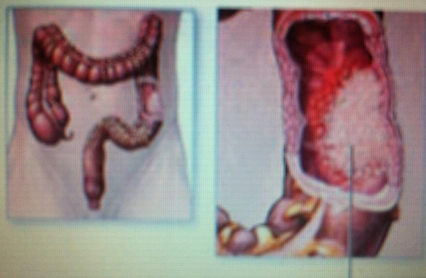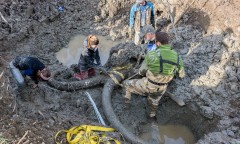By Marshia Garcia, | March 03, 2017

The body of evidence has grown with the new study regarding colorectal cancer among adults, which could make an impact in the recent screening guidelines, Berlin noted. (YouTube)
In a recent study, it was found that the rate of colorectal cancer has increased. Scientists dug through the records of the National Cancer Institute's Surveillance, End Results Program, and Epidemiology. They compared the annual data of the corresponding years and found out that young adults prevailed among the patients inflicted with the disease.
Like Us on Facebook
The study, which was published on Friday in the Journal of the National Cancer Institute, declared that the rate of colorectal cancer has strongly heightened among younger adults.
The researchers found that the chance of a younger adult getting colon cancer per year has increased to 2.4 percent. It was observed that adults in their twenties were most prone to the risk of the said disease. Meanwhile, people in their thirties rose to 1 percent per year. On the other hand, the rate of colon cancer of people ranging 55 and above decreased from the mid-1980's to 2013, according to ABC News.
In the mid-1990s, the rate of this cancer among adults in their forties had also increased to 1.3 percent per year. For adults ranging from ages 50-54, there had been an increase of 0.5 percent.
One of the leaders of the Gastrointestinal Cancer Research Program at Vanderbilt University Medical Center, Dr. Jordan Berlin, pointed out that the increase of colorectal cancer among young people has been shown in recent studies, yet it was shocking to know the result of the new study.
The escalation of the rate of rectal cancer is remarkable. It rose to 3.2 percent per annum from 1974 to 2013. The prevalence of rectal cancer among people in their thirties also shot up to 3.2 for each year from 1980 to 2013. Meanwhile, the study discovered that the rate of this cancer among people in their forties and fifties had increased to 2.3 percent in 1996.
Scientists from the National Cancer Institute and American Cancer Society studied the rates of colorectal cancer from 1974 to 2013 utilizing the records from the National Cancer Institute's Surveillance, End Results Program, and Epidemiology. A large majority of the patients diagnosed with colorectal cancers from 1974 up to 2013 were 20 years old and over. Moreover, the researchers found out that the total population inflicted with such disease had reached 490,305.
For decades, the rates as a whole have gone down among people below 55 regardless of the upticks mentioned above. From 2003 to 2012, the pace has sped up to an annual drop of 3 percent, based on the findings of the study.
The National Cancer Institute stated that the lifetime possibility of developing colorectal cancers continues to be minimal at nearly 4.4 percent.
Despite its statistics, the researchers did not focus their studies on the viable causes why the colorectal cancer rate has drastically increased in the younger adults.
It would take more research to understand the increased on the cancer rate, Berlin said. He added that one would have to think that lifestyle may play a role, supposing that a more inactive lifestyle and obesity would heighten the chance of cancer.
"Our diet, which would be considered a Western diet, has a higher risk for colon cancer and we have certainly changed our diet from the 1950's to 1990's," Berlin iterated.
The escalation of colorectal cancer risks should not make the youth scared. Berlin stressed noting that there are major symptoms that could signal a person that something is wrong.
If one's bowel habits have changed, it is a sign that there must be something unusual. Moreover, blood in the stool, abdominal pain, narrowing of the stools are also some of the symptoms of this condition. For men, developing anemia is also a symptom of colorectal cancer, Live Science reported.
The body of evidence has grown with the new study regarding colorectal cancer among adults, which could make an impact in the recent screening guidelines, Berlin noted.
-
Use of Coronavirus Pandemic Drones Raises Privacy Concerns: Drones Spread Fear, Local Officials Say

-
Coronavirus Hampers The Delivery Of Lockheed Martin F-35 Stealth Fighters For 2020

-
Instagram Speeds Up Plans to Add Account Memorialization Feature Due to COVID-19 Deaths

-
NASA: Perseverance Plans to Bring 'Mars Rock' to Earth in 2031

-
600 Dead And 3,000 In The Hospital as Iranians Believed Drinking High-Concentrations of Alcohol Can Cure The Coronavirus

-
600 Dead And 3,000 In The Hospital as Iranians Believed Drinking High-Concentrations of Alcohol Can Cure The Coronavirus

-
COVID-19: Doctors, Nurses Use Virtual Reality to Learn New Skills in Treating Coronavirus Patients










